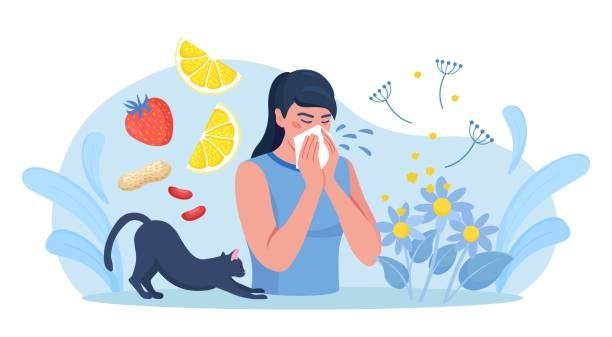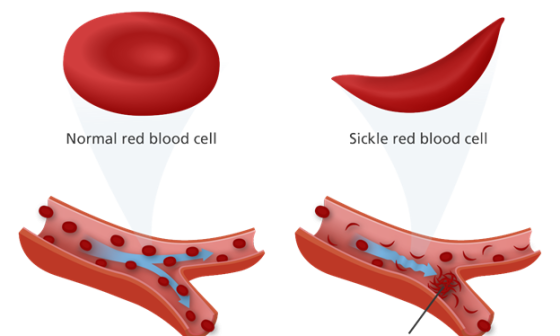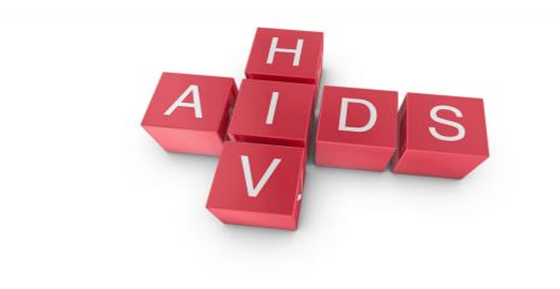Introduction
Have you ever wondered why you sneeze, have itchy eyes, or get a runny nose after being around specific things? You may have allergies, a prevalent condition that impacts millions of Nigerians.
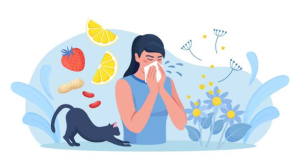
Source:iSTOCK
Nigerians suffer from a variety of allergies that are brought on by several environmental causes. This article discusses what allergies are, the common kinds of allergies, their triggers, and symptoms. We will also teach you about managing your allergies, particularly prevention.
We will also discuss how Wellahealth can support your health journey, potentially including coverage for all health consultations, tests, and medications (depending on the plan).
What are Allergies?
A generally harmless substance known as an allergen triggers an overreaction by your immune system, resulting in allergies through an allergic reaction. Allergens vary in modes of presentation as allergens such as dust mites and pollen can be inhaled, peanuts can be consumed, and animal fur can come into contact with your skin.
Fighting dangerous pathogens (infection-causing organisms) is the immune system’s mission to keep you healthy. It attacks whatever it believes might endanger your body to do this. This allergic reaction could include sneezing, inflammation, red itchy eyes, or a variety of other symptoms, depending on the allergen.
Normally, the immune system adapts to the surroundings. For example, your body should recognize that pet fur is not harmful when it comes into contact with it. The immune system of those allergic to fur attacks the allergen because it is seen as an external threat to the body. This attack then presents as a symptom of an allergic reaction.
Common Allergens (Causes of Allergies)
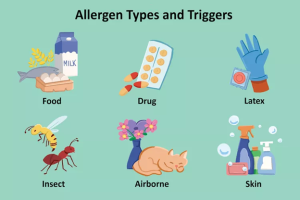
Source: Sydney Saporito/Very Well
- Animal and insect sources: Cockroaches, dust mite excrement, and pet fur. Insects such as mosquitoes, wasps, and bees.
- Medicines: Sulfa medications and penicillins are frequent causes.
- Food sources: Allergies to wheat, nuts, milk, shellfish, and eggs.
- Mould: Mould spores in the air can start an allergic reaction.
- Plant sources: Plant allergens are frequently found in grass, weeds, and trees. Allergens can also be found in the resin of plants like poison ivy and poison oak.
- Other allergens: Materials like nickel and latex can cause allergic reactions. Latex is present in condoms and latex gloves, while nickel is a metal used in pieces of jewellery.
Common Types of Allergies
- Respiratory Allergies: Often result from indoor allergens like dust mites, tiny creatures that live in dust, and pollen from trees, grasses, and weeds (seasonal allergens). Respiratory allergies present as:
- Hay fever: Causes sneezing, runny or stuffy nose, itchy eyes, and coughing.
- Allergic rhinitis: Sneezing, runny or blocked nose, itchy nose, itchy, red, or watery eyes triggered year-round by indoor allergens.
- Allergic asthma: Triggers wheezing, shortness of breath, chest tightness, and coughing, often alongside other allergy symptoms.
- Skin Allergies: Allergic reactions to pet fur, saliva, or urine, with cats and dogs being the most common culprits. Additionally, skin reactions to stings from bees, wasps, hornets, and other stinging insects. Presenting as:
- Eczema: Dry, itchy, red, and inflamed skin, often on the face, hands, and inner elbows.
- Hives: Raised, itchy welts that appear suddenly and can move around the body.
- Contact dermatitis: Itchy, red, and blistering rash caused by direct contact with an irritant or allergen.
- Food Allergies: An immune system reaction to specific foods like peanuts, shellfish, milk, eggs, wheat, soy, or tree nuts.
- Drug Allergies: Allergic reactions to medications such as penicillin or aspirin.
Symptoms of Allergic Reactions
Depending on the person, allergen, and exposure, allergy symptoms can vary. Common signs and symptoms include:
- Runny or blocked nose and sneezing
- Red, watery, or itchy eyes
- Breathlessness, tightness in the chest, or wheezing
- Lip, tongue, eye, or facial swelling
- Eczema, hives, or skin rashes
- Anaphylaxis; is a severe allergic reaction that can be fatal.
Managing and Treating Allergies
Prevention
Reducing your exposure to allergens is the best method to manage your allergies.
- Food Allergies: Carefully read all food labels.
- Seasonal Allergies: Utilise air purifiers and wear masks when pollen levels are high i.e. during the harmattan season (October, November, December).
- Pet allergies: Give your pets frequent baths and keep them out of particular areas.
- Dust Allergies: Clean your house frequently, wash beddings in hot water, and use covers that are resistant to dust mites.
- Allergies to insect stings: Use insect repellent and wear protective clothes at night.
Drugs
Several drugs can lessen allergy symptoms
- Anti-histamines: like diphenhydramine and loratidine can lessen runny nose, itching, and sneezing.
- Nasal decongestants: like loratidine/pseudoephedrine clear the congestion in the nose.
- Nasal corticosteroids: lessen nasal passage irritation and inflammation.
- Leukotriene inhibitors: Beneficial for allergic rhinitis and asthma.
- Epinephrine: Anaphylaxis is an emergency that can cause death, epinephrine is mostly used in this case, mostly through commercially sold EpiPen.
Diagnosis
To diagnose you as someone who is allergic to a specific substance, doctors will start by taking a history and examining you. The following questions would be asked: When and how often do you experience them? what seems to trigger your symptoms (certain foods, dust, pollen, etc). Do you have a family history of allergies? Do you have other medical conditions like asthma or eczema?
After the history is taken, tests may be requested by your doctor, the doctor may request one or both of the popular tests for diagnosing allergies. \
- Skin prick test: This is the most common type of allergy testing. A small amount of the suspected allergen is placed on your skin and then pricked with a needle. If you’re allergic, a raised, itchy bump (inflammation) will appear within 15-20 minutes.
- Blood test (specific IgE test): This test measures the amount of a specific antibody (IgE) in your blood that is produced in response to an allergen. It can be helpful for people who have sensitive skin or who are taking medications that can interfere with skin prick testing.
Conclusion
Allergies are frequent but controllable health concerns. Understanding the causes, recognizing the symptoms, and implementing appropriate management and preventative techniques can dramatically improve the quality of life of persons suffering from allergies.
At Wellahealth, we are committed to providing you with the resources and support you need to effectively manage your allergies and other health concerns. We offer affordable health insurance coverage for as low as #800/month, which enables you and your family to stay informed, prepared, and in control of your health through consultations, and affordable quality medications.
To subscribe to one of our plans, send a WhatsApp message today!
Dr. Ifeoma M. Uduh, Dr John Afam-Osemene
